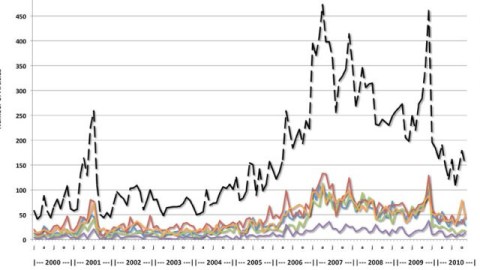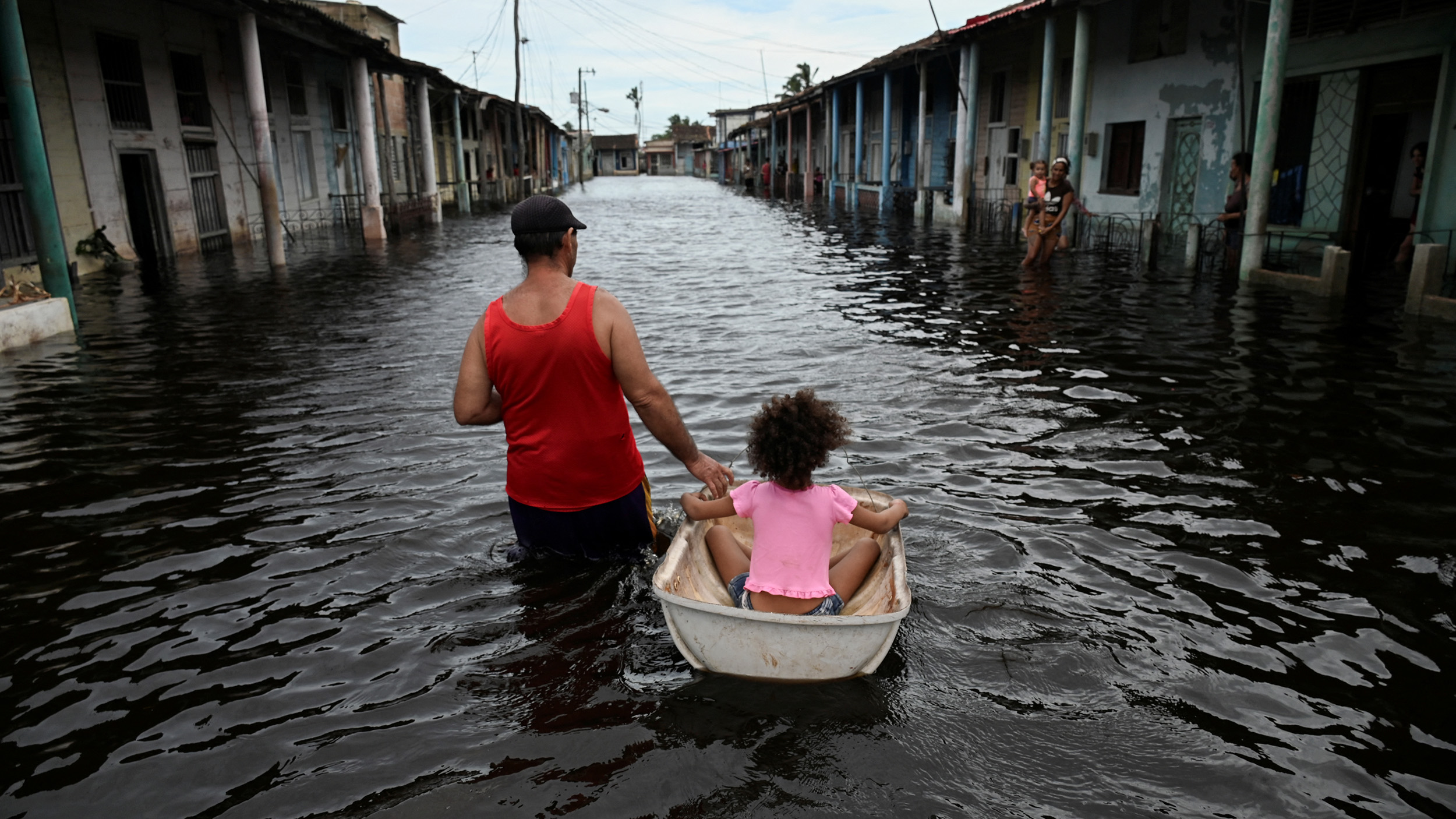Climate Change Enters Downward Cycle in News Attention as Dramatic Storytelling Potential Wanes

After spiking in attention leading up to the December 2009 Copenhagen meetings, analysis by DailyClimate.org and by Max Boykoff at the University of Colorado show a sharp decline in both World and U.S. news coverage of climate change.
There are a number of likely reasons for the decline in news attention. Perhaps foremost is the reduced capacity of news organizations to cover climate change, a reduced capacity that comes at a time when many other issues are also competing for news attention. Sociologists Steve Hilgartner and Charles Bosk have compared the public, political actors, and news organizations to social arenas that like ecosystems have a limited carrying capacity, meaning that each can only pay attention to a few problems at any given time. As one issue rises to attention (or comes to dominate attention) such as the economy or the Midterm elections in 2010, attention to other issues such as climate change declines.
But there is another factor likely involved here: For journalists and the public, climate change has lost much of its perceived dramatic qualities.
As Cornell’s Katherine McComas and Boston University’s James Shanahan note in an oft cited paper, journalists’ coverage of climate change is driven by the need for dramatic storytelling and novel narratives. Much of the drama in news reporting generally — and in science reporting as well — derives from visible political conflict, personality clashes, and contested claims over risks that allow journalists to construct a “news saga” that they can cover for more than a day or week.
Limited carrying capacity and the narrative needs of journalists have fueled what economist Anthony Downs described as “up and down” cycles of attention to climate change.As trend lines on news attention depict (see graphic upper left), there tends to always be a baseline of low level attention to climate change among science journalists, but when climate change has received its greatest media attention, it has been around dramatic political focusing events that have triggered coverage from political reporters and commentators such as the build-up to the 1997 Kyoto Treaty or the controversy in 2001 over the US withdrawal from the Kyoto agreement.In 2006 and 2007, a confluence of politically-related events drove a historic spike in news attention including the release of the IPCC report and Al Gore’s An Inconvenient Truth. In 2009, news attention spiked again around the passage in the House of Cap and Trade and in anticipation of the Copenhagen meetings. [Google news trends show a brief surge, but still limited attention to Climategate followed by a quick return to a state of relative non-attention.]
Will climate change ever regain the historic level of attention that occurred in 2007?
Given the reduced carrying capacity of news organizations and the many competing issues, it is not likely unless a new novel storyline is created for the issue that does not define the problem in terms of environmental impacts but rather in terms of something more proximate, localized, and relevant to the public such as human health risks (The challenge in communicating these risks is to avoid the catastrophe emphasis applied to environmental impacts).
It may be the case that attention to climate change as a social problem has entered an era of long term decline as the perceived political viability of regulatory actions wane, as the public has become habituated to claims of dire environmental consequences, and as attention instead starts to converge on the problem of energy insecurity and the benefits to economic growth that accrue from policies designed to boost America’s innovation capacity.
One thing unaddressed by DailyClimate.org and the University of Colorado analysis is coverage trends at regional and local newspapers. At these outlets–such as the Denver Post– in 2010 as few as 30 articles might appear, with most of these articles national wire service stories that lack details on the regional impacts of climate change or on regional policy initiatives.





